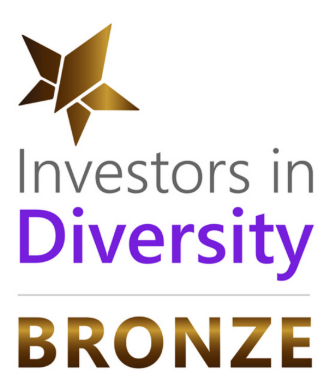Irish Further and Higher Education and Training Sectors step up during Lockdown
Quality and Qualifications Ireland (QQI), the quality regulator for further and higher education and training in Ireland, has undertaken a comprehensive evaluation of the response of higher education and further education and training institutions to the COVID-19 crisis.
The Impact of COVID-19 modifications to Teaching, Learning and Assessment in Irish Further Education and Training and Higher Education - A QQI Evaluation details the measures taken by universities, institutes of technology, education and training boards, private higher education institutions during the global pandemic which resulted in lockdown of physical campuses.
High-level findings from the report reveal that:
-
In the circumstances, teaching in the second semester of 2019-20 seems to have gone reasonably well in that programmes have generally not been delayed or completely derailed. Exceptions include some professional body placements, apprenticeships and research which were all adversely affected by COVID-19 disruptions.
-
Tertiary education staff clearly met the challenge presented by moving online. There was considerable behind-the-scenes coherence and joined-up thinking in evidence across the tertiary system, both within and between institutions.
-
Ireland performed well in comparison to other more dispersed education and training systems internationally such as the US. There was also recognition from Australia in relation to Ireland's superior level of supports and resources made available to international students during the pandemic.
-
The response of tertiary education institutions to the COVID-19 crisis highlighted the complicated nature of their operating environment. Institutions used existing management and Quality Assurance infrastructure to successfully govern change management. This proved crucial to flexible and agile responses, inspiring confidence in the changes implemented.
-
Many students were positive and appreciative of the efforts made by their institutions. More than half of HE students responding to a USI survey expressed satisfaction with the quality of their remote teaching and learning. The majority of FE learners also felt confident in their ability to complete assessments and felt they were fair.
-
The regulatory flexibility within the tertiary system enabled people to learn, innovate, solve problems and get things done, and the strength of the sector's communities of practice helped to support standards.
-
Despite many students expressing satisfaction with the COVID-19 response, a number were dissatisfied with various aspects of how things were handled. Responses from practitioners suggested that some marginalised and vulnerable groups were particularly disadvantaged by the experience of remote teaching and learning. It is important to understand what can be done to enhance the response for 20/21.
INSIGHTS FOR 2020/21 AND BEYOND
The report points to a number of insights which will be valuable to education and training providers for the next academic year:
-
Enhancing online teaching, learning and assessment will be an ongoing priority for institutions as will the need for online delivery of academic and professional support, care and guidance services to students and staff. The institutional effort and resources required to establish a planned blended format for all 20/21 programmes are significant.
-
Remote teaching, learning and assessment challenges different discipline-areas and learner groups differently. Discipline-area communities of practice need to grow, to connect with, and contribute to the scholarship of online teaching, learning and assessment in their discipline-areas.
-
Maintaining essential learning outcomes should continue to be the guiding principle to focus minds and resources. Institutions should continue to strive to provide learners with opportunities to achieve the originally intended module, stage, or programme learning outcomes.
-
Social distancing will continue to constrain tertiary education teaching, learning and assessment in 20/21. Choosing how to use onsite activity to best effect will be critical. The induction of new students and returning progressing students will need to be a priority as will access to specialist facilities and equipment.
-
Nearly 18,500 non-EEA and 5,000 EU students were enrolled in post-secondary studies in Ireland during the 2018/2019 academic year. Any reduction in the proportion of international students studying in Ireland as a result of the COVID-19 crisis, aside from being financially damaging to institutions, has the potential to diminish the educational experience for students in Ireland because of the reduced opportunity to engage with people from different backgrounds. A similar point applies to any reduction of students from Ireland engaging in periods of study abroad.
-
With many institutions replacing invigilated, in-person written examinations with online exams there were greater opportunities for cheating in the second semester of the 2019/2020 academic year than normal. While the opportunities for cheating may have increased, all institutions have experience in preventing, deterring and detecting breaches of academic integrity especially plagiarism. This has been supported by an increased focus nationally on academic integrity in higher education through the QQI-sponsored National Academic Integrity Network.
Dr Padraig Walsh, CEO of QQI, explained the importance of this evaluation and commended the tertiary education sector on its collaboration with the project:
“This report provides an early authoritative account of the impact of the modified teaching, learning and assessment arrangements within education and training institutions the length and breadth of the country. The main takeaway is a sense of confidence in the quality of the education and training that was delivered for learners under the most difficult of circumstances. This was vital in ensuring the integrity of qualifications they have gained during 2020 both nationally and internationally."
Dr Walsh continued,
“QQI recognises that it will take many years before the full impact of change experienced during this time will be fully realised by all, both positive and negative. However, the commitment shown to this reflective project is a fitting testament to the integrity and reputation that underlies the Irish education and training system. We would like to acknowledge the openness of the responses received from HE and FET providers to what has been one of the most collaborative projects undertaken across the tertiary education sector to date."


